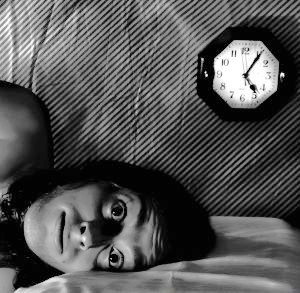By David Colburn
Staff Writer
Ah, sleep; sweet, restorative rest. A marathon of tranquility that flows smoothly with the concept of time itself. Contrary to the sentiments expressed by Sleepytime Gorilla Museum in one of their earliest anthems, sleep is not wrong. Yet, as estimates from the Daily Health Report indicate, roughly 40 percent of American adults may have insomnia. This serves as quite a predicament; not only is insomnia an often uncomfortable state of being, it can lead to a variety of different long-term health effects. Ygoy.com explains that less-than-surprising factors (depression, stress, anxiety, and even heredity) often play a role in insomnia, and that operating a vehicle while sleepy can be even more dangerous than driving under the influence of alcohol. Recent studies have mapped different dimensions of the disorder.
Study Number 1: Sleep Deprivation and Short-Term Euphoria
According to Medical News Today, researchers at UC Berkley and Harvard Medical School have found an intriguing correlation between sleep deprivation and short-term euphoria, which is not as pleasant as it may sound.
Matthew Walker, lead author of the study, has given the following analysis, “The sleep-deprived brain will swing to both extremes, neither of which is optimal for making wise decisions.”
The study focused on two groups; relatively healthy young adults that had missed a night of sleep, and relatively healthy young adults that obtained adequate rest. Researchers ultimately determined the “neural pathway that stimulates feelings of euphoria, reward and motivation” could also lead to poor judgment after a spell of sleeplessness. Medical News Today explains that sleep-deprived participants displayed heightened activity in the mesolimbic pathway, which relates directly to “positive feelings, motivation, sex drive, addiction, cravings and decision making.”
Results of the study were published in the Journal of Neuroscience on March 22, 2011. Earlier research performed by the same group has indicated that a lack of sleep tends to activate primal neural functions while deactivating the prefrontal cortex and other regions that relate to decision making.
For more specific information on the study: http://www.medicalnewstoday.com/articles/220044.php
Study Number 2: Insomnia Medication and Mortality Risk
Insomnia is an issue that must, without a doubt, be remedied, but medication may not be the best option. HealthJockey has displayed a recent study performed by Laval University and initially published in the Canadian Journal of Psychiatry. According to the study, certain drugs prescribed to patients with insomnia increased the mortality risk by 36 percent.
Over 14,000 Canadians, ranging from 18 to 102 years of age, were surveyed every two years from 1994 to 2007. Participants that only used the drug once during the final months of medication faced a mortality rate of 15.7% and those that abstained from use faced a rate of 10.5%. Based on auxiliary health issues, such as alcohol use and level of physical activity, researchers ultimately determined that the consumption of “sedatives or anxiolytics result in a 36% increase of mortality risk”.
Apart from the possibility of death itself, researchers have also found that the medications have detrimental effects on the respiratory and central nervous systems.
For more information on the study: http://www.healthjockey.com/2010/09/13/insomnia-and-anxiety-treating-drugs-may-increase-risk-of-mortality-by-36-percent/
Study Number 3: Tart Cherry Juice’s Effect on Insomnia
One may wonder if there is a safer solution to calm the effects of insomnia, and to finally receive the relaxing prospect of rest. According to Awake in America, the answer may be as close as the aisles of the local supermarket.
The Journal of Medicinal Food recently published a study instigated by researchers of University of Pennsylvania, University of Rochester, and VA Center of Canandaigua. 15 elderly adults drank a standard eight ounce serving of CheriBundi, a tart cherry juice beverage, every morning and evening for a span of two weeks. The same participants then consumed a similar beverage without tart cherry juice for the following two weeks.
On average, the group saved roughly 17 minutes of “wake time after going to sleep” for the 14 days of tart cherry juice consumption. Researchers involved in the study believe that the result is related to the cherry’s content of the melatonin antioxidant, which helps “moderate the body’s sleep-wake cycle”.
For more information on the study:
http://awakeinamerica.info/2010/top-news/tart-cherry-juice-may-help-insomnia/
For more insomnia statistics and facts:
http://insomnia.ygoy.com/2010/08/03/facts-about-insomnia/




